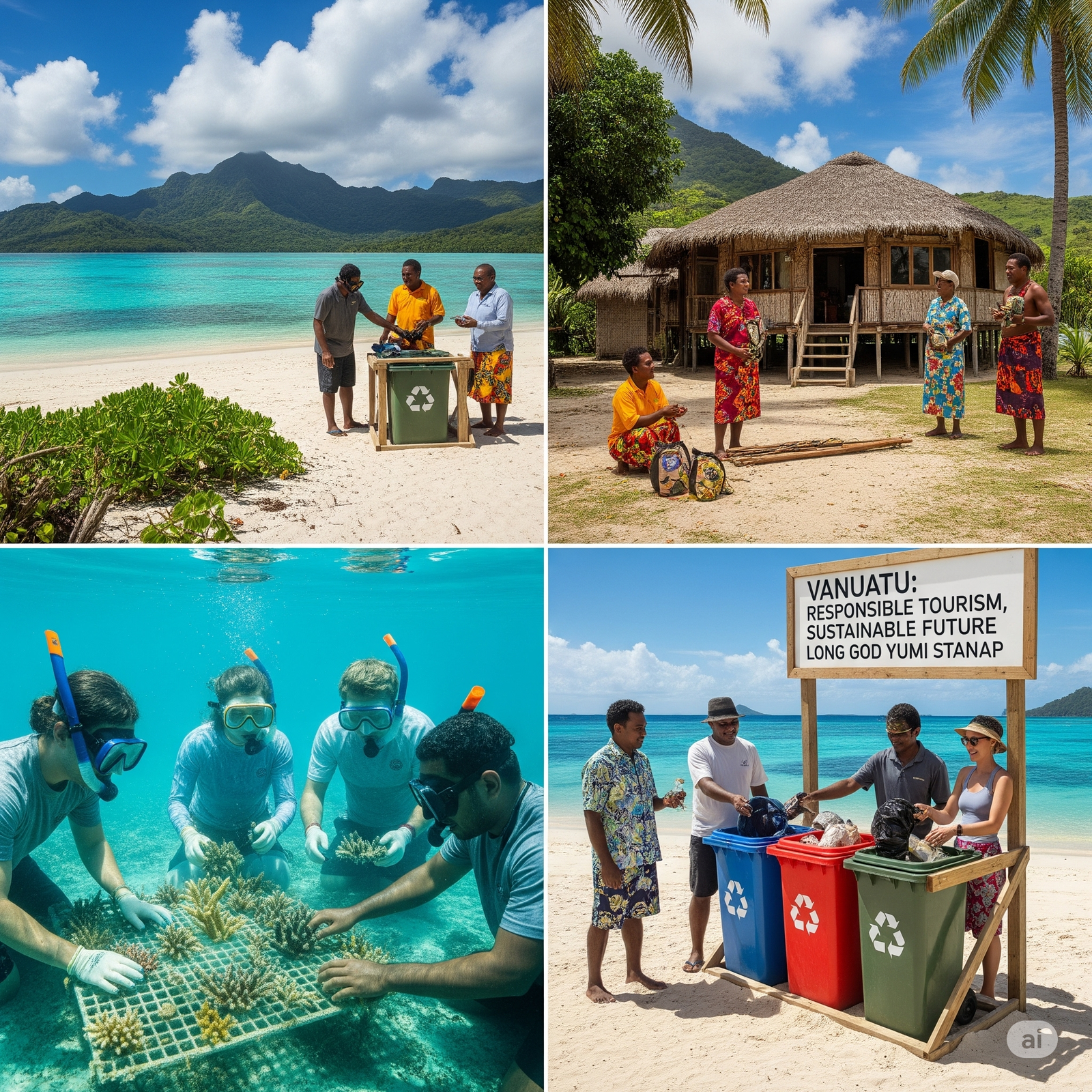Vanuatu. The name alone conjures images of pristine beaches, lush rainforests, and vibrant cultures. But this South Pacific gem is also highly vulnerable – to climate change, to the impacts of tourism, and to the delicate balance of its unique ecosystems and “Kastom” ways of life. As travelers, we have a profound responsibility to ensure our visit contributes positively and leaves this paradise as beautiful, or even more beautiful, than we found it.
Sustainable travel in Vanuatu isn’t just a buzzword; it’s a mindful approach that respects the environment, supports local communities, and preserves the rich cultural heritage for generations to come. Here’s how you can be a responsible traveler in this extraordinary nation:
1. Respect Kastom and Local Communities
Vanuatu’s diverse cultures and “Kastom” (traditional customs and laws) are its most precious asset. Respecting them is paramount to sustainable tourism.
- Hire Local Guides: This is perhaps the single most impactful action. Local guides (especially for village visits, volcano treks, or jungle walks) provide invaluable insights, ensure respectful interactions, and directly benefit their communities. Your money goes straight to local families, empowering them to preserve their traditions.
- Ask for Permission: Always ask before taking photos of people, especially in traditional villages. Ask permission before entering private or sacred land. Your guide will help you navigate this.
- Dress Modestly: Especially when visiting villages or attending ceremonies, dress respectfully. Women should generally cover their knees and shoulders.
- Learn a Few Phrases: Even a simple “Halo” (hello), “Tank yu tumas” (thank you very much), and “Ale” (okay/goodbye) in Bislama will show respect and open doors.
- Participate Respectfully: If invited to a ceremony or meal, observe, listen, and participate with an open mind and genuine appreciation.
2. Support Local Businesses and Artisans
Your spending choices have a direct impact.
- Buy Local Souvenirs: Prioritize handicrafts made by local artisans (carvings, basketry, woven mats, local coffee, vanilla, coconut products) from markets or directly from villages. Avoid mass-produced imports.
- Eat Local: Dine at local restaurants (“local nambas”) and markets. Enjoy fresh, local produce and seafood.
- Choose Locally Owned Accommodation: Opt for guesthouses, bungalows, or locally-owned resorts that employ local staff and use local resources sustainably.
- Direct Payments: When possible, pay service providers (guides, drivers) directly in cash.
3. Protect the Environment: Land and Sea
Vanuatu’s natural beauty is fragile. Your actions can help preserve it.
- Reduce, Reuse, Recycle: Minimize your plastic consumption. Bring a reusable water bottle (many accommodations offer filtered water), a reusable bag, and avoid single-use plastics where possible. Take all your rubbish with you, especially from remote areas.
- Mind Your Footprint: Stick to marked trails when hiking. Do not disturb wildlife or remove natural items (shells, coral, plants).
- Responsible Snorkeling & Diving:
- Do not touch or stand on coral. Coral reefs are incredibly delicate ecosystems.
- Use reef-safe sunscreen: Chemical sunscreens can be toxic to marine life.
- Maintain buoyancy: Ensure you don’t kick or brush against marine life.
- Conserve Resources: Be mindful of water and electricity usage, especially in remote areas where resources may be limited. Take shorter showers, turn off lights and AC when leaving your room.
- No Feeding Wildlife: Do not feed fish or other wild animals, as this can disrupt their natural behaviors and diets.
4. Smart Transport Choices
How you move around Vanuatu also plays a role.
- Consider Shorter Hops: While island hopping is wonderful, try to consolidate your travel to minimize domestic flights if time allows, or choose islands in closer proximity.
- Use Local Transport: Embrace local buses, shared taxis, and village trucks. This supports local drivers and reduces the number of individual vehicle trips.
- Walk Where Possible: For short distances, walking is the most sustainable and immersive way to explore.
5. Educate Yourself
The more you know, the better you can act.
- Research Kastom: Before visiting an island or village, learn about its specific customs and traditions.
- Understand Environmental Challenges: Be aware of how climate change impacts Vanuatu (rising sea levels, extreme weather) and why your sustainable actions matter.
- Seek Reputable Tour Operators: Choose operators who explicitly state their commitment to sustainable tourism, responsible community engagement, and environmental protection.
Traveling sustainably in Vanuatu is a journey of mindfulness and respect. By embracing these principles, you not only ensure your trip is enriching and authentic, but you also become a positive force in preserving the unparalleled beauty and unique cultural heritage of this truly special nation. Your footprints in Vanuatu should be light, leaving only goodwill behind.


Leave a Reply